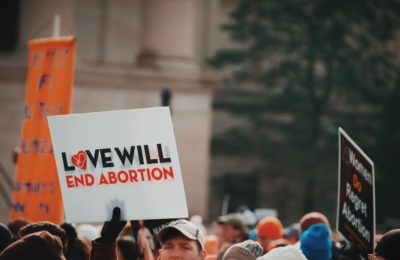The End of Government Schools
August 16, 2017 | Published first in American Thinker
When in doubt, cry racism. It’s the left’s go-to weapon when the facts are against them. School choice advocates, then, should be heartened: Progressives lately have had to stoop low, get dirty, and hurl mudballs in our direction, because that’s all they’ve got.
This month progressives let fly three separate volleys, hoping the “racist” argument would somehow find its mark. The New York Times, the Center for American Progress, and the American Federation of Teachers all argued that educational choice is “racist,” rooted in “slavery,” and a cover for “segregation.” (One commentator also blames “anti-Catholic sentiment and a particular form of Christian fundamentalism.”) Worse, they declare authoritatively, “choice” will spell the end of democracy, as we know it.
First came the Center for American Progress. Their report, “The Racist Origins of Private School Vouchers” (July 12, 2017), chains current voucher proposals to segregationist policies of the past, concluding that vouchers are “fundamentally positioned to funnel taxpayers’ dollars into private schools while draining much-needed resources from public schools and … vulnerable students.”
A week later, Randi Weingarten, president of the American Federation of Teachers, called Education Secretary Betsy DeVos “a public school denier, denying the good in our public schools and their foundational place in our democracy.” Weingarten described “vouchers, for-profit charters and other privatization schemes” as the “polite cousins of segregation,” part of a scheme to “protect the economic and political power of the few against the rights of the many.” She accuses proponents of educational choice of trying “to starve public schools to the breaking point … and let the market handle the rest.” And that, she declared ominously, is “how a democracy comes apart.”
The last day of July, New York Times columnist Katherine Stewart — who imagines “Christian Nationalism” and “the fundamentalist agenda” as part of a “stealthy” mission to take over the public schools — penned a thousand-word screed against “school choice” (she uses scare quotes) without ever debating its merits. She too links school choice supporters and critics of “government schools” (a phrase she finds ominous) with “Jim Crow-era” segregationists and religious fundamentalism. Their aim, she asserts, is “the empowerment of a rearmed Christian right” bent on “freedom from democracy itself.”
The message, writes the Cato Institute’s Neal McClusky, is that “private school choice is the work of racists.” We can expect that message to “be a major weapon wielded by opponents of educational freedom for the foreseeable future.”
It won’t work. America’s schools are failing — both the left and the right know this. The expiration date is long past on the left’s stale “solutions” to America’s crisis in education. They’ve had their turn; it’s time for parents to take the reins. In minority communities in particular, parents want choice. They reject the lie that “school choice” equals “segregation” and, according to McCluskey, “survey literature — African-Americans speaking for themselves” — shows they “overwhelmingly” support educational choice. Kevin P. Chavous of the American Federation for Children, agrees: “[T]oday’s private school choice movement has been overwhelmingly embraced with open arms by minority families across the country … test scores, graduation rates and the number of students enrolled in college have improved because of vouchers, tax credit scholarships, and Education Savings Account programs. The vast majority of students seeing these benefits are from low-income, working-class, and minority families.”
Educational choice gives lower-income families the same opportunities enjoyed by wealthier families. As David French writes, “Wealthy Americans have enormous educational advantages. They can afford private-school tuition… They can afford homes in the best school districts. They can employ private tutors and create the most lavish and interactive home-schooling experience. The rest of America? They’re typically reduced to no choice at all. There’s the mediocre public school in the moderately priced neighborhood or the dreadful school in the cheapest district. That’s it. There is nothing else….”
The war over vouchers and school choice reflects an even deeper division within America. It’s a clash of visions, a fight over who has the right to shape the hearts and minds of our children. Education, writes Andrew T. Walker, “is about the transmission of values, about allowing local associations, not government institutions, to form the bonds of society.” Walker’s child attends a classical Christian school. He explains that, “We chose this for our child because we believe that what public schools value as true, good, and beautiful do not align with what we believe is true, good, and beautiful. It’s a conflict of visions, and in America, we’re blessed to have options.”
Progressives, writes Walker, view “government schooling as the apex of citizenship, but also, more fundamentally, as a form of secular discipleship.” Most parents, however, think that schools have no business forming secular “disciples.” Especially given the “limited moral imagination of modern-day progressives.” Here’s a better idea: Let’s give parents the opportunity to choose what’s best for their children. School choice won’t spell the end of democracy. But it just might spell the end of government schools as we know them. And that would be a very good thing.




